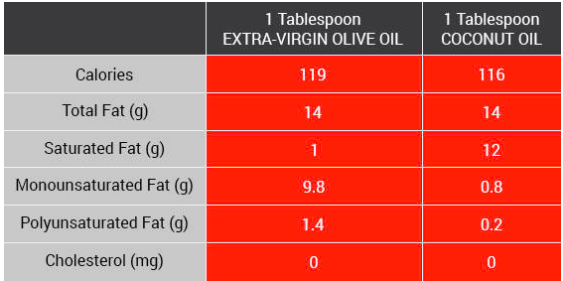
Have you ever heard of using coconut oil for constipation? We have been using coconut oil for quite a long time for its many benefits and properties. Coconut oil has properties that include treating the burnt and irritated skin, taming skin inflammation, keeping skin moisturized, healing wounds and many more. This happens because the medium-chain fatty acids in coconut oil help in treating skin issues and protect the skin from harmful bacteria. Also, coconut oil possesses antibacterial properties.
Here, we will see how coconut oil can help treat constipation by ingestion. Among its numerous properties, curing constipation is also one of them.
Table of Contents
How does coconut oil help with constipation?
Coconut oil possesses a laxative effect that can increase metabolism and help food pass more quickly and with ease through the body. This can make you have frequent, smaller and softer stool movements out of your body.
Coconut oil can cause loose motions too: What not to do?
To avoid this scenario, you must never ingest coconut oil on an empty stomach. This could lead to cramps and diarrhea. It has to be taken along with food or at least followed by intake of food to help fight constipation as it helps to make your poop movement watery and soft. You should also stay hydrated and drink enough water all day to see the desired result.
So, isn’t it evident that if coconut oil could be associated with diarrhea, then it can definitely help you ease up your constipation problems? Right?
It is indeed helpful in both kinds of constipations- chronic and acute.
- Acute constipation is mostly the result of poor dietary habits, excess alcohol consumption, or dehydration.
- Chronic constipation is often the result of long term use of some particular medication, certain food allergies, chronic dehydration, or some essential vitamins deficiencies which might make your stool hard causing constipation.
Also read: 10 Reasons for Stomach Pain
How to use coconut oil for constipation relief?
There are several ways in which you can ingest coconut oil to ease your bowel movements and get rid of the dry and hard stool problems which can ultimately lead to piles or tear in your anal passage and the area surrounding the rectum. Here are the ways of using coconut oil:
With juice:
You can choose any fresh fruit juice over the processed and tetra packed juices. All you have to do is mix ½ tablespoon of coconut oil in your choice of juice (preferably freshly squeezed). And ingest it before 30 minutes of every meal of the day.
With your morning oatmeal:
Measure ½-1 tablespoon of coconut oil and add it to your morning breakfast of healthy oatmeal. This will help you to have a smooth bowel movement and will avoid the hardness of stool and uncomfortable feeling all day.
With smoothie:
You can add ½ -1 tablespoon of coconut oil to your bowl of smoothie to promote easy bowel movements for the day’s toilet visits and to fight the feeling of constipation all day. You can gradually increase the amount if the small amount doesn’t help.
With warm water:
You can also mix ½ – 1 tablespoon of coconut oil in warm water and drink it before every meal, before 30 minutes. This is the easiest go-to method.
With turmeric and ginger:
Mix coconut oil with ginger and turmeric in the proportion of 1: ½: ½ in half cup warm water and have this mixture before going to bed. This will have amazing results in the morning. This will help you clear your bowels and have that light comfortable feeling the whole day.
Also read: Are Abdominal pain and Constipation Related?
Olive oil or coconut oil for constipation, which is better?
Olive oil is usually consumed to lower cholesterol levels and help balance blood sugar levels. This may directly or indirectly help treat constipation. Extra virgin olive oil is considered the best form as it does not go through a lot of heating and chemical processes.
How to use olive oil for constipation?
Mix half spoon of olive oil to your beverage either orange juice or warm milk. You can also add olive oil to your salad as a dressing on it or while cooking. You can also gulp it directly (1-2 tablespoons). But why olive oil? It is full of good fat. Olive oil contains 73% oleic acid, a monounsaturated fat that is very healthy. These monounsaturated fats make you feel full. The oil also acts as a lubricant by forming a slippery, waterproof layer around the stool, easing your constipation.
Possible side-effects of Olive oil for constipation
One tablespoon of olive oil contains approximately 20 calories and 14 grams of fat. You can assume weight gain in this process. Diarrhea is also a common side-effect if you consume more olive oil than necessary.
Why coconut oil for constipation?
- Speeds up weight loss – Coconut oil contains medium-chain fatty acids, which means that your body is more likely to use them for energy and less likely to store them as fat.
- Easy to digest – Coconut oil contains medium-chain fatty acids that digest quickly as compared to other dietary oils and fats.
- Coconut oil has a higher smoke point than other oils – It has a higher smoke point than other oils. For example, ghee gets oxidized when heated to deep-frying temperatures whereas coconut oil doesn’t. When the oil is oxidized at a high temperature, the quality degrades, which in turn is bad for the heart.
- Leaves you satiated for longer – In comparison to other fats, consumption of coconut oil increases the feeling of fullness and leads to an automatic reduction in calorie intake.
- Tastes better – Using coconut oil as a base can enhance the flavors of several Indian dishes especially South Indian food.

Coconut oil for constipation in toddlers and babies:
You can add one tablespoon of coconut oil in your infant’s morning yogurt or each meal for the proper 1-2 stool session per day. If this doesn’t help, try adding 1 tablespoon of coconut oil in each meal of their day. 4-5 tablespoons per day are enough to stimulate your baby’s bowels. Toddlers need a relatively smaller quantity per day.
Coconut oil for constipation during pregnancy:
During pregnancy, a woman may face numerous issues like vitamin deficiency, muscle cramps and hormonal imbalances. This commonly results in constipation in pregnant women. To curb this problem, you can consume a single tablespoon of coconut oil mixed with warm milk or warm water before every meal. This is believed to help soften stool and prevent painful constipation during pregnancy. Also, you should seek your doctor’s guidance if it doesn’t help during pregnancy and ask for the required medication.
Take Away
Coconut oil is a good home remedy for constipation. You have to make sure that you do not take a large quantity of coconut oil in initial days as this may result in running the rounds of the toilet all day. Do not forget that it is a powerful laxative and the dosage should be gradually increased, noting how it affects your constipation symptoms. Generally, 1 to 2 tablespoons of coconut oil each day, is good to relieve the symptoms of constipation whereas some people require up to 3-4 tablespoons. So, it is about what and how much your body requires to respond. Each body has a different nature and mechanism for responding to various substances. Therefore, keep that in mind and observe what quantity serves your purpose and best suits you.
After trying coconut oil or other treatments if constipation still persists, make an appointment with a doctor or a gastroenterologist. If you don’t have a bowel movement for a week, you should seek medical attention. You should also consult a medical expert if your bowel movements are painful or produce little stool. Pristyn Care is just a click away. You can consult our doctors online and they will be happy to help you.

Also read: 10 Stool Softener Foods
Also read: Banana in Constipation







